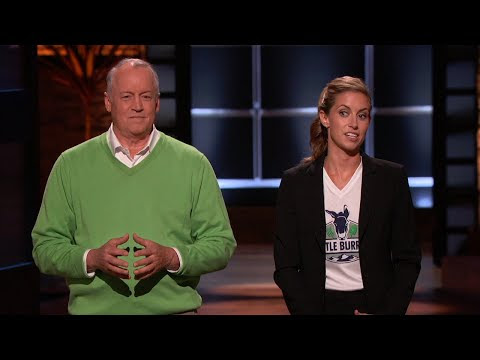That is, the economic value of a company. This is typically an important calculation in equity-based fundraising as it plays a part in determining dilution, eventual share price and more.
Pay close attention to the ABC show’s dealings, and you may have figured out its sharks’ (aka investors) basic formula for determining valuation: The amount of money the entrepreneur is asking for combined with the percentage of equity they’re offering represents the value of the company.
So, if the entrepreneur is asking $100,000 with 10% equity, $100,000 is 10% of the company’s valuation — which in this case is $1 million ($100,000 x 10).
This is where the sharks usually ask how much the company made in the prior year. The valuation is then divided by that amount. If the company made $100,000 last year, it would be $1 million ÷ $100,000 = 10. If the company continues to make $100,000 each year, it would take 10 years for the investor to break even.
But investors aren’t looking for companies that earn a consistent amount over the years, they’re looking for companies that will make significantly more in the next few. Investors like these sharks have high-level connections and resources that can get the company to $1 million and beyond faster than without them, which gets factored in. Except this time, there is no set formula.
What you’ll often see on “Shark Tank” is the sharks negotiating for a larger percentage of equity — say, 20% or higher — because they believe they would bring that much more value to the company.

Baltimore-founded Hungry Harvest’s Evan Lutz on ABC’s “Shark Tank.” (Photo by Tyler Golden/Getty Images)
Other factors are a company’s current momentum. If a company with a $1 million valuation made $200,000 the previous year and have recently gone viral on social media, there’s a good bet that they’ll hit $1 million before the five years it would take the investor to break even with steady earnings. In this situation, you might see the sharks fight over the startup, by offering more money at the same percentage of equity or for less equity.
All of this negotiating can be fun to watch, and to feel as if the founders who strike deals have won a prize. But it’s not free money. While some of the startups become household names like Bantam Bagels, Scrub Daddy and The Original Comfy, it still takes a lot of work with no guarantee of success. And while businesses that go through “Shark Tank” do have a low failure rate, they’re companies that were extensively vetted as being potentially good investments before even appearing on the show.
TV vs. reality
If you have a startup and dreams of a billionaire venture capitalist making a big investment and making your product a household name, there are a few things to consider:
- Equity means you share profits, and if you, as a struggling early stage-startup, give up a double-digit percentage of equity to an investor, that’s going to be a lot of money going to them if the company succeeds.
- Equity means you have to answer to your investor(s), and include them in business decisions.
- Investors are going to want to see growth fast, as soon as you have the funds.
- If the business does fail, you’ve lost your investor(s) a significant amount of money. That’s the risk the investor took, but it’s a lot of responsibility for you.
In some industries, like deep tech, VC is almost required to succeed. Investment might be the way to go if the company is moving toward a mass production stage.
But it’s possible to succeed without giving up any equity to an investor. That was the choice Wilmington, Delaware based Carvertise made early on.
“It’s like driving,” Carvertise founding partner Greg Star told Technical.ly in 2022. “If you don’t take the money, it’s like you’re driving the speed limit. If you take money, you’re driving 100 miles an hour on a 60-mile-an-hour road and if you have one small bump you fly off. I think a lot of companies go that route where their companies are good and promising, but because they can’t scale as fast as their investors want, it just kind of dies out, and it’s deemed not a success because they didn’t grow to $100 million in five years.”
VC advisor Pedro Moore counts “Shark Tank’s” own Daymond John as a client. Although venture capital is his business, he advises some entrepreneurs not to do it if they have any doubts that the company will grow tenfold within about five years. Even if they have little doubt, founders who want control over their startups might want to look into other ways to grow.
“If the founders don’t want to relinquish control of their company or experience significant ownership dilution,” Moore said, “they should not pursue VC funding.”
In the case of Carvertise, the company became self-sufficient through it’s own sales (aka bootstrapping) as it grew into a national advertising company.
If you’re still thinking about pursuing VC investors, you need to start by figuring out the company’s value. Because there are so many factors to consider, it’s a good idea to look into resources through local chambers of commerce, small business organizations or startup accelerators for help in making those calculations, and with deciding to pursue VC funding or other avenues.
Join the conversation!
Find news, events, jobs and people who share your interests on Technical.ly's open community Slack

Philly daily roundup: Student-made college cost app; Central High is robotics world champ; Internet subsidy expiration looms

Delaware daily roundup: Early-stage loan help; Jobless rate drops below 4%; $700k grant for industrial park

Philly daily roundup: Earth Day glossary; Gen AI's energy cost; Biotech incubator in Horsham


